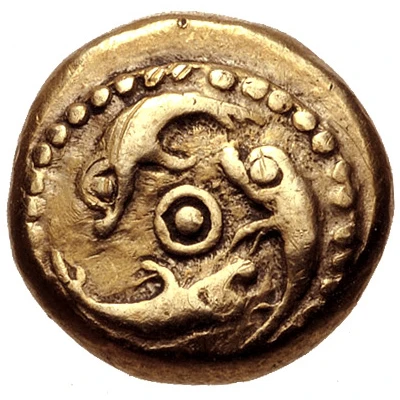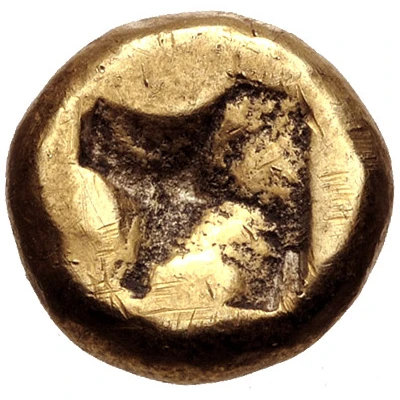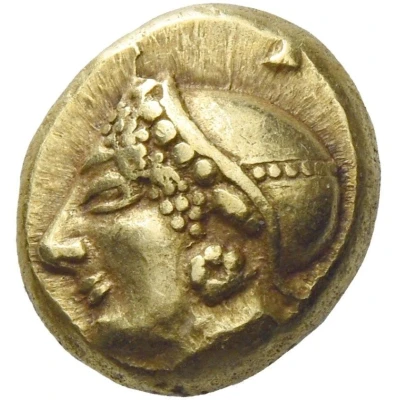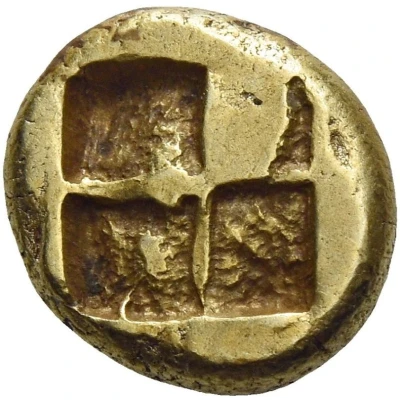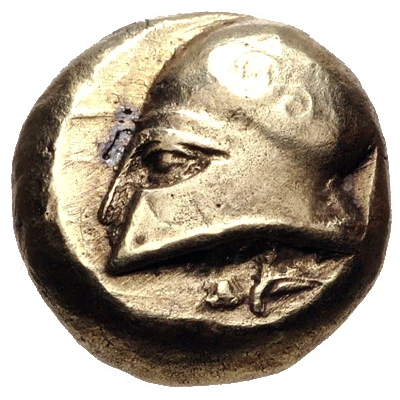
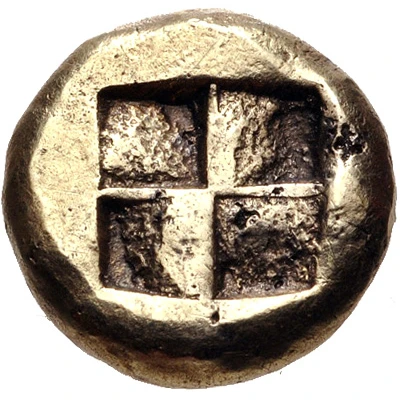

© Classical Numismatic Group, Inc.
Hekte 521 BC - 478 BC
| Electrum | 2.63 g | 10.5 mm |
| Issuer | Phokaia (Ionia) |
|---|---|
| Type | Standard circulation coin |
| Years | 521 BC - 478 BC |
| Value | Hekte (10⁄3) |
| Currency | Drachm |
| Composition | Electrum |
| Weight | 2.63 g |
| Diameter | 10.5 mm |
| Shape | Round (irregular) |
| Technique | Hammered, Incuse |
| Demonetized | Yes |
| Updated | 2024-10-10 |
| Numista | N#147938 |
|---|---|
| Rarity index | 100% |
Reverse
Quadripartite incuse square
Interesting fact
The Hekte coin was used as a form of currency in the ancient Greek city of Phokaia (Ionia) during the 6th century BC. Despite its small weight of 2.63 grams, it was considered a significant amount of money at the time and was used for everyday transactions. The coin's design featured an image of a lion's head on one side and an inscription on the other, which helped to establish its authenticity and value. The use of electrum, a naturally occurring alloy of gold and silver, added to the coin's value and durability. The Hekte coin is a fascinating example of early currency and the importance of trade and commerce in ancient civilizations.
Price
| Date | Mintage | VG | F | VF | XF | AU | UNC |
|---|---|---|---|---|---|---|---|
| ND (521 BC - 478 BC) | - | - | - | - | - | - |
Values in the table are based on evaluations by sales realized on Internet platforms. They serve as an indication only for Hekte (521 BC - 478 BC) coin.
